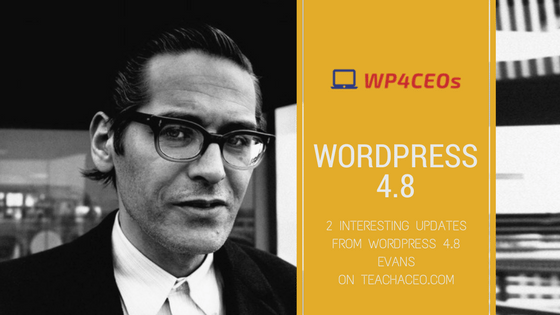There are skills one has to adapt to be an effective and efficient CEO and anyone can be a CEO. “It’s within everyone’s grasp to be a CEO” Martha Stewart. The most common skills are decision making being the leader of the team and communication. Some CEOs are born with skills while others have to acquire them through consistent practice. As a CEO, you have to remind yourself its not always about you and practice servant-leadership in most cases. We asked entrepreneurs what critical skills one must have to be a CEO and here are the awesome responses.
#1- The ability to focus on the positive and build connections

A leader’s role is to nourish their people, to provide an environment where they can celebrate their innate gifts and use those gifts to build powerful relationships and outcomes in their personal and work lives. Whether you are a solo entrepreneur, lead a mid-size company or direct a multinational business, one of your key tasks is to inspire yourself and your team members to deliver and exceed business expectations. I am convinced from 37 years of research and practice that focusing on the positive will take you much, much further to attain your dreams and business success.
Thanks to Anita Sanchez, Ph.D., Sanchez / Tennis & Associates LLC!
#2-Deep listening

Deep listening is the key to all effective communication and without it, messages are easily misunderstood and people end up feeling frustrated, annoyed, rejected, anxious, or angry.. Effective listening promotes better understanding of people, reduces conflict, and enhances relationships.
Thanks to Katy Kvalvik, Southwestern Empowerment!
#3- Mental toughness

In business we are challenged daily. The importance of having mental toughness becomes paramount for each CEO that desires to win. Being able to accept “no” as a “not right now” is a law that CEO’s must live by. When the season changes the answer very well may change! It requires grit to stay in the fight daily. While we as CEOs determine our days off we understand that we are always working. Remaining consistent in the storms of entrepreneurship yields the best results. One thing is for sure “all storms end”. We must be able to stand tough in the storms. Also, understanding that each loss will teach us a valuable lesson that will prepare us for greatness. Last, but certainly not least knowing how powerful leadership becomes when building your team “Leadership = Influence”.
Thanks to Raquel M.R. Thomas
#4- Ability to grow and adapt to changes

Be willing to learn: You have to always be willing to grow, evolve and get better. You can achieve this through a combination of reading, seeking business coaches, attending seminars, talking to advisers, etc… If you don't grow, your business won't grow either. You must continuously be looking at how your specific industry is changing, how your competitors are performing in the market place, what new technologies are available, etc. But most importantly, you must be able (and willing) to adapt to changes quickly.
Thanks to Oliver Seidler, PropertyForce!
#5- Strategic thinking

A company¹s success starts with having the right product or service for its market. Most important is the market. The CEO needs to think strategically about positioning to identify a market that is large enough for the company to compete but not too large that it¹s over-run with competitors. From there it¹s about building a differentiated product that meets both the demand of identified customers and what you think they will need.
Thanks to Bill Demas, Conviva!
#6- Faith in the team

From my experience, successful entrepreneurs have one thing in common – faith in the team they've built and the product that they've developed. Without faith, any minor inconveniences will be seen as undestroyable, which is not true. So to become a CEO you have to be open-minded and ready for anything as long as you have a team of professionals and unique and useful product.
Thanks to Sergey Yudovskiy, electroNeek Robotics!
#7- 360 overview of their business

Entrepreneurs and business owners need to have a 360 overview of their business. In our case, this means that I need to understand the practicalities of a warehouse, showrooms, delivery partners, website, marketing and sales team from a bird’s eye view. This doesn’t necessarily mean that every business owner needs to know every single micro-facet of how each process works in their business. What it does mean is that having an understanding of how each business function interacts and intersects with each other is critical to identifying bottlenecks and areas for improvement that can enrich the customer experience.”
Thanks to David Ewart, Pavilion Broadway!
#8- Persistence
 Creating and managing a company is not often achieved overnight, so you need to be persistent and resilient throughout the process. Whether it’s coding your new site, finding reliable employees or breaking into the market as a new company, you will be met with rejection and difficulties before you achieve success. So, being persistent and putting in the hard work are essential skills all CEOs should have.
Creating and managing a company is not often achieved overnight, so you need to be persistent and resilient throughout the process. Whether it’s coding your new site, finding reliable employees or breaking into the market as a new company, you will be met with rejection and difficulties before you achieve success. So, being persistent and putting in the hard work are essential skills all CEOs should have.
Thanks to Steve Pritchard, Checklate!
#9- Drive to keep learning

It may seem crazy, but I didn't really realise that I was an entrepreneur until probably my mid-twenties. I’d always had a keen interest in business/startups and tried so many ventures in my teens onward; this included selling clothing on eBay that I was shipping in from China, attempting to set up multiple websites selling various products from Xbox/Playstation games to make-up, and even rugs! After this, I ventured into the affiliate side of things, which eventually led me on to creating my own software development company with a co-founder – this was all before I was 25. The crazy part of it all was that it just felt like a hobby – as I enjoyed it, it didn't feel like a job and just came naturally to me.The CEO part was definitely a learning experience and it’s become somewhat natural over time, but not without plenty of learning and mistakes along the way. I remember that at the very start, one of our co-founders (10 years my senior) told me that I wasn't quite ready to be a CEO yet but that I'd make a great one in the future. I think I took this fairly well at the time (for a mid-twenties, hard-headed entrepreneur at least) and although it did put me down for a short period of time, it helped shape me into the CEO I am today, as I was able to concentrate on learning everything and anything I could about the industry (Bitcoin), our company and competitors.5 years later and I haven't stopped learning – I eat, sleep and breathe Bitcoin and business in general. Over time, you slowly realise that you have to keep learning in order to keep up or you’ll fall behind, so I’d say that for me, one of the main skills you need as a CEO is the drive to keep learning.
Thanks to Danny Scott, CoinCorner!
#10- Leader instead of a boss

It means s/he should teach the employees “why and how to do a certain thing” instead of only ordering them what to do. Additionally, they should be a keen observer. They must have the ability to figure out the strengths of their employees and modifying their job roles accordingly. It is a win-win situation for employees and the business. When every employee will do the task in which he is best, then how can a company not progress?
Thanks to CJ Xia, Boster Biological Technology!
#11- Forward-thinking

You have to be able to look at the future of your industry and predict where it’s headed before those changes start to take place. It’s your job to figure out what types of problems your clients will face in the future, and figure out how to solve those problems. You also have to be able to identify and hire the industry leaders who can help you build those solutions. The CEO’s job is to plan for the future, and the best CEOs are the ones who can see what the future is going to look like before anyone else sees it..
Thanks to Jon Hill, The Energists!
#12- Several skills

There are many skills one must possess to be a CEO and specific areas where they should be stronger than most others. As a business owner myself, I find that a CEO must be very responsible, have strong communication skills, and can make important decisions. A CEO is someone that is understanding, who can manage others, who can guide their employees in the right direction and who can learn from mistakes. Employees are inspired by this individual and expect this person to find solutions in drastic times. When you think of CEOs you think of individuals who have taken risks and made big decisions for their businesses.
Thanks to Jeff Arnett, Arnett Designs!
#13- Storytelling

You’re on stage every day, whether you’re standing up in front of 1,000 people, speaking to one key investor or recruiting a key employee. No surprise. But what is surprising is just how much your audience will forget tomorrow. So you have to tell a good story. I don’t mean tell them what you think, or even delivering on the data. What you think doesn’t matter as much as what will be remembered. Because after the 100,000 words that your audience will take in today, you have to leverage some suspense and enlist the senses of your audience in order for your words to stick in their memory until tomorrow, let alone next week. The best CEOs have a collection of stories that they can pull from, and they are constantly improving and shaping them for the right audience at the right time. Thus, whether it’s a teachable moment for a key employee that has come up short, and you offer a story of failing yourself and what you learned, or it’s a key journalist who doesn’t get the essence of your idea, or it’s the impact your product had on one happily surprised customer, you are constantly delivering on change through your stories, constantly aiming and re-aiming the ship that you captaining, and constantly thinking about this: What will they remember tomorrow? Ask this question every time you approach a key presentation, large or small, and you will be memorable. Be memorable, and you will not only increase your success, you’ll have more fun along the way.
Thanks to Jay Golden, Retellable!
#14- Comfortable selling

As a CEO you are always in sales mode for your product, service, ideas, etc. To be successful in sales you have to start with a strong foundation of understanding human nature along with the knowledge of negotiation strategy and tactics. Your business will not survive unless you can sell to your customers, clients, investors, employees and Board so get comfortable selling because your success depends on it!
Thanks to Paige Arnof-Fenn, Mavens & Moguls!
#15- Be charming

You won't get along with everyone, but you should be convincing and you should be engaging. You don't have to be everyone's best friend, but you should win everyone over. If you're a good leader, people will follow you even if they don't necessarily like you. Respect isn't like and it isn't given, it's earned.
Thanks to Dr. Mike Golpa, G4 by Golpa!
#16- Confidence and people skills

A CEO has to be confident and a leader. You become confident when you know what you are doing or at least the direction in which you should be heading. That i why a CEO has to be experienced in the area he is in. A great CEO also would have to understand people. How to motivate people and what motivates employees. He has to understand that people have to feel a purpose, to understand his decision and that they somehow befit from his
decisions.
Thanks to Filip Silobod, Honest Marketing Galway!
#17- Negotiation

When you decide to go into business, any business, there are a list of things you need to do: You need to get capital, turn that capital into your product, and then find consumers for that product. It doesn't matter what industry your in or what shape your product takes. Without doing these things, you will fail. And the one essential skill for all of these is negotiation. You need to negotiate with investors and possibly banks to obtain the necessary capital. Then you need to negotiate with suppliers, vendors, and your own employees to convert that capital into product. You'll have to negotiate with different outlets in order to market your product and then, of course, you need to negotiate with your prospective clients and consumers. The better you are at negotiating, the more successfully you'll be able to accomplish these and the more successful you'll be as a CEO.
Thanks to Jason David, Software Portal!
#18- Ability to delegate and surrender control

As an entrepreneur with a small business, it's incredibly difficult to relinquish control when you did nearly everything yourself in the early days. But it's that ability to delegate and grow a team that separates an effectively self-employed solopreneur from a true CEO. You have to get over the fact that most people you hire won't be able to do the tasks as well as you can. And those who can do it better, you can't afford as a startup. But if you refuse to build a team and delegate tasks, you reach a ceiling and simply can't grow any further. If you're a small startup or solopreneur, I recommend starting by hiring a VA and assigning them routine, low-skill tasks. They can do them just as well as you for a fraction of your hourly rate, and it frees you up for higher-value work like marketing, networking, strategy, and sales.
Thanks to Brian Davis, Spark Rental!
#19- Self-awareness and coachability

I've been a CEO and a small business owner and the two skills I think are more important in any leadership situation are self-awareness and coachability. Today's business environment requires us to adapt quickly and relentlessly. That means leaders must not only be great at what they do, they also have to be great learners. They must know what they don't know-and be willing to work hard to learn it. Self-awareness means knowing what you're good at and what you're not. It means you don't hide your flaws or cover up your mistakes. You don't pretend to know it all. It means you practice humility and embrace learning. Coachability just means you're open to feedback. You don't get bent out of shape by constructive criticism. You're actually grateful for it because you want to improve and grow, personally and professionally.
Thanks to Quint Studer, The Busy Leader's Handbook!
#20- Consistency and self-discipline

Self- discipline is the key to success which emphasizes the process of learning to give up bad habits and sticking to the good ones. Remember that your current or future business is like your karma. It is the reflection of who you are and if you are not consistent and disciplined in your habits, your business will be the same. Self-discipline helps to construct a clear vision, a path to success which opens the mind to the endless possibilities and opportunities. In the process of mastering discipline, hard-work is inevitable. Remember that everybody wants to go to heaven but nobody wants to die and if reaching your business goal was easy everyone else would do it.
Thanks to Maria Zakaryan, Gata!
#21- Perseverance

There's one challenge after another and you rarely get an opportunity to catch your breath. You have to monitor and keep pace with your competitors. You have to make projections regarding the business's future and the economic climate, then adapt accordingly. You're tasked with controlling the constantly escalating operating costs. The ability to persevere and successfully address issue after issue on a consistent basis is a skill every CEO must have.
Thanks to Vinay Amin, Eu Natural!
#22- Pattern recognition
Pattern recognition is a huge part of being the executive of any business. You will need to be able to spot the flaws in your own creation. Being able to analyze the information about where success comes from and how to either replicate it or do it better is a huge part of business. Many businesses that fail do so because they can't pragmatically asses the flaws in their own company, you can never achieve growth without really looking hard at your own sales and processes. Amazon is a great example of what extreme efficiency and pragmatism can create, there is a reason that have become such a massive corporation despite starting as a guy selling books out of his garage.
Thanks to Alexander M. Kehoe, Caveni Digital Solutions!
#23- Creativity

I'm a business owner who believes one of the essential skills necessary to become a CEO is to keep pushing yourself to think outside of the box. Do not be content to ride on the success of other specific product or service. Instead, think of ways that you create other, new products that align with best-selling offerings, partner with like-minded companies to establish mutually beneficial partnerships, and create engaging content through e-newsletters and social media for your audience. Get creative and encourage all of your team members to weigh in with their feedback, too!
Thanks to Deborah Sweeney, MyCorporation.com!
#24- Visionary and adopting first

If you are a CEO of any business, it is important to have a vision for your business. You need to be clear about its mission, values and how you want it to grow. Besides that, it is also important that you are willing to adopt new technologies and changes quickly. In a dynamic space like blogging, if you are adopt something at a latter stage, it will always be difficult to establish yourself. For example, early users of Pinterest have been able to take advantage of the platform in a way that may take a lot more time now. Similarly, early YouTubers found it easier to find viewers and subscribers as compared to now.
Thanks to Chhavi & Amit, Mrs. Daaku Studio!





































![9 Career Lessons from Blue-collar Business-owners Who Became Millionaires – [Infographic]](https://teach.ceoblognation.com/wp-content/uploads/sites/8/2019/11/adult-1867771_640.jpg)






 |
|